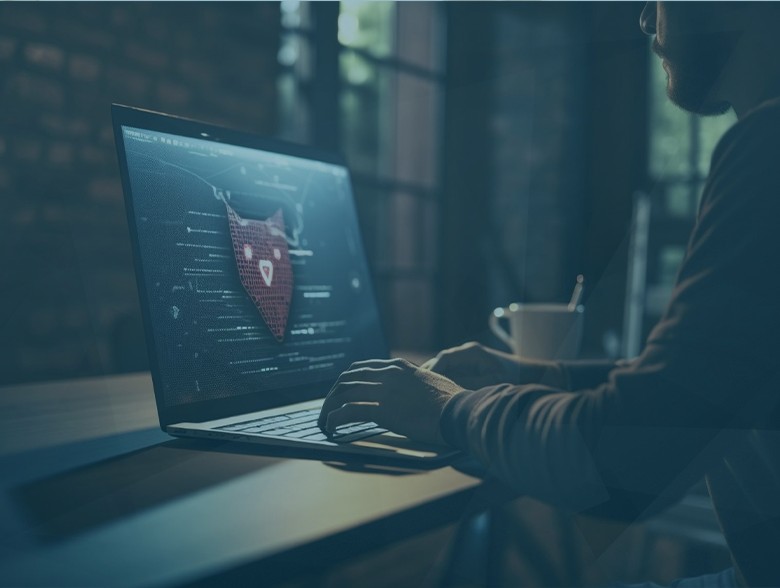Enterprise threat protection is missing this critical component
By Harry Maugans, CEO, Privacy Bee
Companies fight hard to find, cajole and incentivize top talent to run their business. They also invest in cybersecurity systems for the business, protecting it within its closed system. But those same executives are as highly valued by hackers as they are by the business. Their external data, when collected from any number of shopping, social or messaging sites are so integrated in our lives; they can be the all-access pass into the company system.
Data privacy at the C-Suite level is critical in today’s hyperconnected, competitive market. Executives are responsible for making decisions that shape an organization’s future and shielding them from potential risks is vital. Protecting an executive’s personal and professional data ensures that confidential information, important business strategies, plans and upcoming initiatives remain safe.
Why executive data privacy is critical.
It’s important to understand that threats facing executives, separate from the rest of the workforce, are real and on the rise. In fact, 58% of CEOs in the United States have received physical threats after taking a position on a controversial topic such as race, politics or gender. One reason for this is the increasing exposure of executives’ personally identifiable information (PII) via social media channels. A recent poll of CEOs from the 2022 Fortune 500 list revealed that 70% of them have a profile on at least one social media platform, which is a 62% increase from 2020.
As companies report more cybercriminal attacks on senior-level executives, especially with business or personal accounts as a tool, protecting personally identifiable information should be a top priority. Executives are increasingly targeted directly or used as pawns in a larger organizational scheme, which can compromise sensitive business data and lead to unexpected, exorbitant costs.
Data privacy, internal and external, helps minimize the risk of corporate espionage in the form of hacking. While most companies invest heavily in cybersecurity, it’s not comprehensive for today’s ecosystem. The next step to stay ahead of threats is External Data Privacy (EDP). This allows an organization to audit and secure data that is already outside of the organization which could be used in a malicious way.
Executives’ personal information and online activity, such as email, social media or shopping behavior, may be used against them if they are not secured properly. Protecting and monitoring personal accounts and digital behavior is a way to safeguard not only the senior-level executive but also the reputation of a company and its stakeholders.
Social engineering on the rise
There has been a significant increase in social engineering attacks, posing a serious threat to organizations and individuals in leadership positions. In fact, it was the top attack type in 2022.
Social engineering refers to the manipulation of individuals to gain unauthorized access to sensitive information or systems. It is often carried out through deceptive tactics, such as standard phishing via email or text message, or through social media, which can appear in the form of account hacking, deception, impersonation or fraud.
With the widespread use of social media platforms and increased online activity, individuals have become more susceptible to this type of manipulation. As such, organizations are also at risk, directly, or as byproducts of their staff’s poor External Data Privacy (EDP). These social engineering techniques can be used to breach security systems and gain unauthorized access to valuable data.
Executives must be cautious about the information they share online and be vigilant against suspicious emails or messages asking for personal details.
Once information has been shared, however, it’s out there to be manipulated and used by threat actors, hence the need for stronger EDP across all employee segments. Organizations should prioritize investing in EDP in addition to regular cybersecurity measures such as firewalls, encryption protocols and intrusion detection systems can enhance organizational safety.
The recent rise in social engineering calls for heightened awareness about data privacy and protection. It’s critical for organizations to be proactive in safeguarding personal information online and to implement effective measures at both individual and organizational levels, that way, it’s much easier to defend against these evolving threats.
The future of data privacy
When it comes to cyber threats, over half of today’s employees note that threat prevention for executives and their digital assets are not covered in their cyber, IT and physical securities budgets. And while attacks are increasing for executives, as is the cost of data breaches, the investment into external data protection needs to keep pace.
With the financial impact of global cybercrime on track to reach $10.5 trillion by 2025, there is no better time to invest in an External Data Privacy strategy. Hackers are responsible for the bulk of digital crime, but the greatest threat is human error accounting for more than 80% of incidents, ranging from an executive with poor EDP or a team member clicking on a bad phishing link.
As socially engineered threats become more widespread, and more executives become targets, monitoring for external risk across organizations will be a necessary addition to a comprehensive cybersecurity strategy moving forward.
About the Author
 Harry Maugans is the CEO of the Privacy Bee, a proactive privacy company. In 2012, Harry founded and became the CEO of Clickagy, a data intelligence platform for digital marketing and analytics. In 2020, he became the Vice President of Product at ZoomInfo, and in 2021, Harry stepped into his role as CEO of Privacy Bee. Harry Maugans attended the Terry College of Business at the University of Georgia from 2006 to 2010, where he studied Computer Science.
Harry Maugans is the CEO of the Privacy Bee, a proactive privacy company. In 2012, Harry founded and became the CEO of Clickagy, a data intelligence platform for digital marketing and analytics. In 2020, he became the Vice President of Product at ZoomInfo, and in 2021, Harry stepped into his role as CEO of Privacy Bee. Harry Maugans attended the Terry College of Business at the University of Georgia from 2006 to 2010, where he studied Computer Science.
Harry Maugans can be reached on LinkedIn here. Learn more about Privacy Bee by visiting https://privacybee.com/


